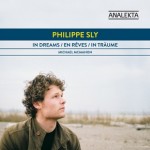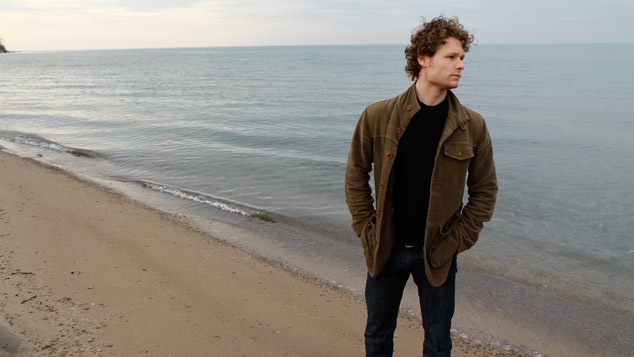All Philippe Sly has to do is open his mouth and let a bit of air vibrate his vocal cords for the musical seduction to begin.
- Classical Music 101: What Does A Conductor Do? - June 17, 2019
- Classical Music 101 | What Does Period Instrument Mean? - May 6, 2019
- CLASSICAL MUSIC 101 | What Does It Mean To Be In Tune? - April 23, 2019
 It’s the case on his début album, a collection of German, French and English art songs recently issued by Quebec label Analekta, with McGill University’s Michael McMahon as accompanist.
It’s the case on his début album, a collection of German, French and English art songs recently issued by Quebec label Analekta, with McGill University’s Michael McMahon as accompanist.
As has been the case with his auditions, competition entries and opera roles, it seems there’s nowhere this 24-year-old bass-baritone can go without people wanting him to stay awhile and sing some more.
If he chooses wisely from the many tempting plates of musical work and learning being handed to him at the moment, there is every ingredient here for the making of a great international artist.
I can’t help thinking of fellow Ottawa native Gerald Finley and how, a generation later, there is someone from the same place posed to follow in his international footsteps.
(Sly is the umpteenth child to grow up singing at St Matthews Anglican Church in Ottawa to graduate to music studies and a professional career. This place needs to get some sort of special recognition for what is has been doing for Canadian art music.)
Sly recorded his album In Dreams last spring, three months before winning the Montreal International Voice Competition. It is a wonderful collection of art song roughly themed around the illusions of love.
The young bass-baritone swings between a slightly sighing languor and grim determination in Robert Schumann’s Dichterliebe song cycle, capturing the essence of each song perfectly. Here, as elsewhere on the disc, there are little details that can use a bit of polish, but the voice is so naturally rich and expressive that any tiny misgivings vanish with the singer’s next breath.
The Schumann cycle is paired with Maurice Ravel’s haunting trio of mélodies, Don Quichote à Dulcinée, for a change of sound and mood. Sly is masterful with the art of French art song legato, and McMahon’s piano accompaniment suddenly leaps to life as a true sparring partner after its relative discretion in the Schumann songs.
The album also comes with a beautiful revelation, Three Tennyson Songs, written for Sly by contemporary British composer Jonathan Dove after the two met and hit it off musically at a Banff workshop three years ago. Dove’s style defies quick description other than to say it is tonal, evocative and timeless. The composer is deft at matching music and words, and changing atmospheres quickly.
The least successful song cycle on the album is by lesser-known French composer Guy Ropartz (1864-1955), a disciple of the César Franck school.
Quatre poèmes d’après l’intermezzo d’Heinrich Heine is based on the same set of poems used by Schumann in Dichterliebe, but unlike Schumann’s careful layering of tempo and mood, Ropartz’s cycle is unrelentingly introspective, bookended by a solo-piano Prelude and Postlude that are pure reflection. What starts off as a nice float in a lake of rich sonorities turns into a windless drift to nowhere in particular. The music ultimately lacks texture or direction, depite Sly and McMahon’s fine efforts.
But I kept listening, enchanted by that beautiful voice and all the markers of a budding talent with incredibly fine musical instincts.
For more details on the album, click here. (And I want to point out that the CD booklet offers too little information on the music, and does not contain any of the texts being sung.)
Here is the promotional video:
John Terauds
- Classical Music 101: What Does A Conductor Do? - June 17, 2019
- Classical Music 101 | What Does Period Instrument Mean? - May 6, 2019
- CLASSICAL MUSIC 101 | What Does It Mean To Be In Tune? - April 23, 2019




